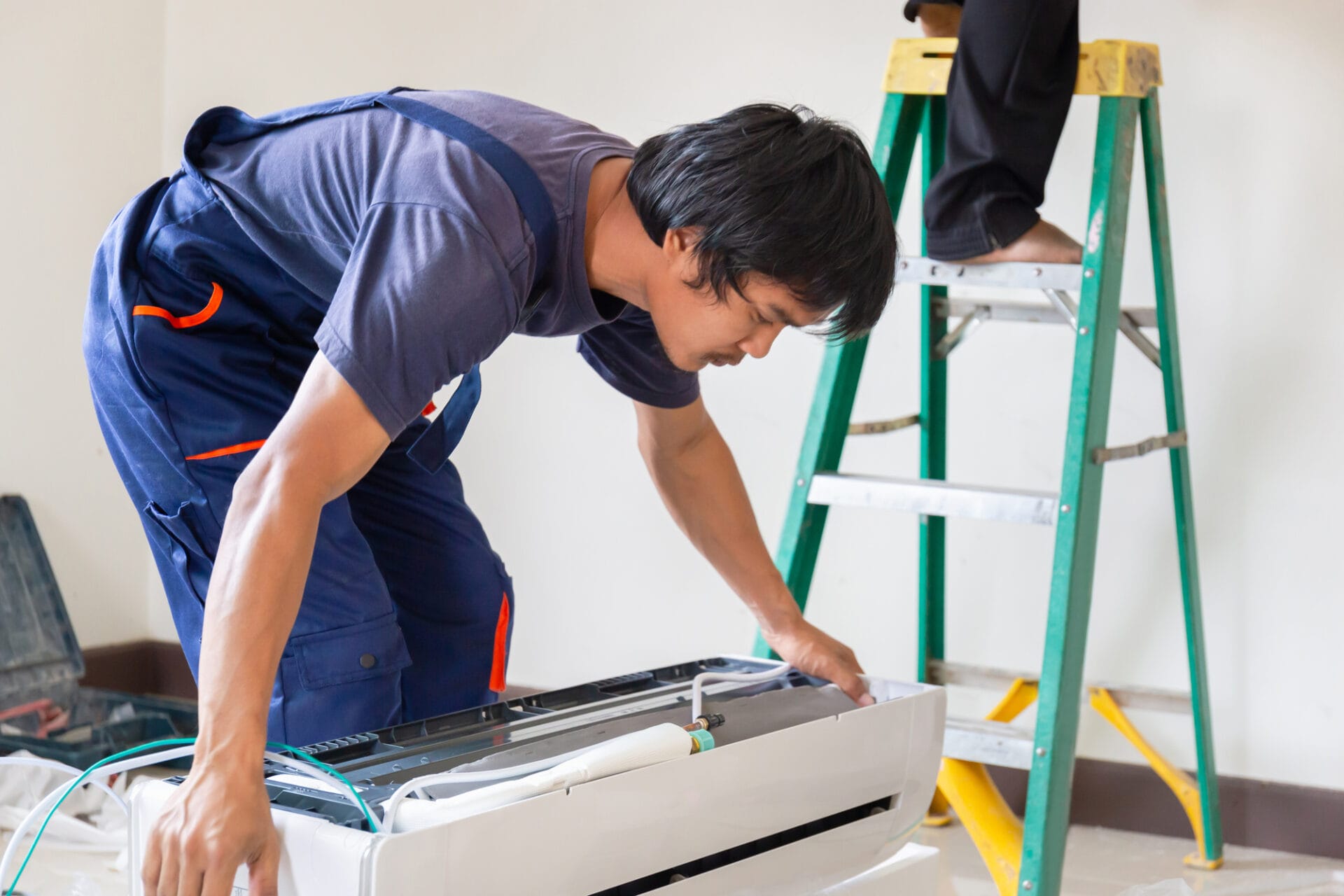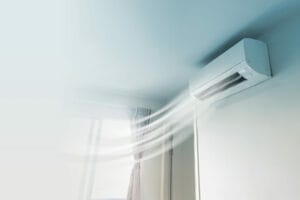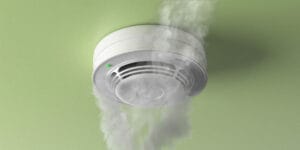Yes, your furnace can leak water, and the reasons might vary depending on its efficiency. If you’ve got a high-efficiency furnace, a blocked condensation drain might be your culprit. For standard models, trouble often stems from exhaust pipe issues or air conditioners sharing a drain getting jammed up. Don’t overlook a malfunctioning humidifier or improperly sized exhaust pipes; they’re known troublemakers, too. Identifying the source quickly is key to avoiding a host of risks, including structural damage or mold growth. Turning off the power and water supply are your first steps. Knowing what to look for could save you from future headaches.
Common Causes of Leakage
Several reasons can lead to your furnace leaking water, each indicating a different issue within the system. If you’ve got a high-efficiency furnace, it’s likely condensation causing the leak. These furnaces produce condensation that drains away, but if the drain gets clogged, you’ll find water pooling. In standard-efficiency furnaces, which shouldn’t produce much condensation, a leak might hint at a faulty exhaust pipe with improper sizing or installation issues.
Another culprit could be the air conditioner. During warmer months, your AC shares an internal drain with the furnace. If this drain gets clogged, water backs up and leaks around the furnace. Also, a malfunctioning humidifier attached to the furnace can leak water, requiring prompt attention to prevent further damage.
Diagnosing Your Furnace Leak
Before tackling a leak in your furnace, it’s crucial to accurately diagnose the source of the problem. Start by checking the condensation line for clogs or damage, as high-efficiency furnaces often produce water that must be drained away. If it’s clear, inspect the furnace’s filter. A dirty filter can restrict airflow, causing ice to form on the coil and melt into water.
Also, examine the humidifier, if your furnace has one, as it can leak into the furnace when malfunctioning. Lastly, don’t overlook the heat exchanger. Although less common, cracks here can lead to water leaks. Identifying the precise cause is key to effectively fixing the leak and preventing future issues.
Potential Risks and Damages
After pinpointing the cause of your furnace leak, it’s important to understand the potential risks and damages it may pose. Unchecked water leakage can lead to significant issues, including structural damage to your home. Water seeping into floors and walls compromises their integrity, potentially leading to costly repairs.
Additionally, persistent dampness encourages mold and mildew growth, posing health risks to you and your family. The water can also damage the furnace itself, corroding metal parts and shortening the system’s lifespan. If the leak reaches electrical components, it could cause short circuits, posing a fire hazard.
Ignoring a furnace leak doesn’t just risk your comfort; it jeopardizes your home’s safety and structure, leading to far greater expenses down the line.
Immediate Steps to Take
If you discover your furnace is leaking water, it’s crucial to act swiftly to mitigate potential damage. First, shut off the furnace’s power supply to ensure safety. Don’t neglect this step; it’s essential for preventing electrical hazards.
Next, turn off the water supply to stop further leakage. Once you’ve secured the area, inspect the furnace to identify the source of the leak. If it’s visible and appears minor, such as a loose connection, you might try tightening it. However, don’t attempt complex repairs on your own.
Instead, mop up any standing water to prevent damage to your floors and reduce the risk of mold growth. Finally, call a professional to inspect and repair your furnace. Quick action can save you from costly repairs down the line.
Long-Term Prevention Strategies
Having addressed immediate actions for a leaking furnace, let’s now focus on how you can prevent such issues from arising in the future.
Regular maintenance is your best friend. Ensure you’re scheduling annual inspections with a certified HVAC technician. They’ll catch small problems before they morph into bigger, more costly ones.
Don’t overlook the importance of changing your furnace’s filter every three months. A clogged filter can restrict airflow, causing your system to work harder and potentially leading to water leaks.
Also, keep an eye on your furnace’s condensate line. It should be cleaned annually to prevent blockages that could cause water to back up and leak.
Adopting these habits will significantly reduce the likelihood of future furnace leaks.
Frequently Asked Questions
Can a Water Leak From My Furnace Affect Indoor Air Quality, Potentially Causing Health Issues for My Family?
Yes, a water leak from your furnace can indeed affect indoor air quality. It can potentially cause health issues for your family by promoting mold growth and increasing humidity levels. These factors can trigger allergies and respiratory problems.
How Does Seasonal Weather or Climate Impact the Likelihood of My Furnace Leaking Water?
Seasonal weather or climate significantly impacts your furnace’s chance of leaking water.
High humidity in summer or freezing temperatures in winter can increase condensation or cause pipes to freeze and burst, leading to leaks.
Are There Any Specific Furnace Models or Brands That Are More Prone to Water Leakage Issues?
You might wonder if certain furnace brands or models leak more often.
It’s not about the brand, but more about how well you maintain it and the installation quality that really affects leakage risks.
Can Regular HVAC Maintenance Appointments Identify Potential Water Leakage Problems Before They Become Severe?
Yes, regular HVAC maintenance appointments can spot potential water leakage issues early on, preventing them from worsening.
It’s crucial you don’t skip these checks to keep your system running smoothly and avoid unexpected repairs.
Is There a Difference in Water Leakage Issues Between Older Furnace Systems and Newer, High-Efficiency Models?
Yes, there’s a difference in water leakage issues between older furnace systems and newer, high-efficiency models.
Newer ones often have more complex components that can leak, but they’re also designed to be more leak-resistant.
Conclusion
In conclusion, if you’ve noticed your furnace leaking water, it’s crucial to act swiftly. The causes can range from a simple issue like a clogged filter to more complex problems such as a malfunctioning humidifier. Ignoring the leak can lead to significant damage and risks to your home.
By promptly diagnosing and addressing the issue, and implementing long-term prevention strategies, you’ll safeguard your furnace’s efficiency and extend its life, keeping your home warm and safe.



